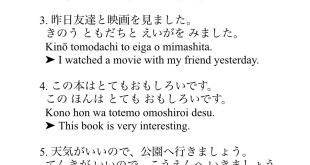Daily greeting communication in Japanese
When making a formal greeting, it is proper to stop and bow.
Expressions used in greetings vary depending on the other person.




10 Ways to Greet People in Japanese
1. おはようございます (Ohayou Gozaimasu) – Good Morning
This is a polite way to say good morning and is typically used until about early morning, and mid-morning. The casual form, used with friends or family, or even colleagues is simply おはよう (Ohayou).
2. こんにちは (Konnichiwa) – Good Afternoon
Perhaps the most well-known Japanese greeting. This is a short form of the phrase “konnichiwa gokiken ikaga desu ka?” or “How are you feeling today?” (今日はご機嫌いかがですか?). It is commonly used during mid-day or in the afternoon. Despite being so common, it is recommended that Konnichiwa should not be overused, try to mix things up sometimes, and you’ll notice the effect.
3. こんばんは (Konbanwa) – Good Evening
Used during the evening and night, when the sun has already gone down, this greeting helps shift day greetings into a more appropriate nighttime “hello”.
4. おやすみなさい (Oyasumi Nasai) – Good Night
Said when parting at night or before going to sleep, this phrase can be translated directly into “have a nice rest” or “good night”. A more casual version of this phrase is Oyasumi おやすみ.
5. いってきます (Ittekimasu) – “I’ll go and come back”
Used when leaving the house, it signifies to those remaining that you will return.
6. いってらっしゃい (Itterasshai) – “Please go and come back”
This is what those who are staying behind say to someone who is leaving the home. This can also be used to express “Have a nice day”.
7. ただいま (Tadaima) – “I’m home”
Said when returning home to announce one’s return.
8. おかえりなさい (Okaerinasai) – “Welcome home”
The response to “Tadaima,” welcoming someone back home.
9. はじめまして (Hajimemashite) – “Nice to meet you”
Used when meeting someone for the first time, often followed by a self-introduction.
10. さようなら (Sayounara) – Goodbye
A formal way to say goodbye. It’s sometimes perceived as final, suggesting that you might not see the person for a while. However, you also can use it as a goodbye when a teacher leaves a class after lesson time.
Related Post:
How do you say “You are welcome” in Japanese?
20 Basic Japanese Phrases
 Learn Japanese Free Learn Japanese Free
Learn Japanese Free Learn Japanese Free





